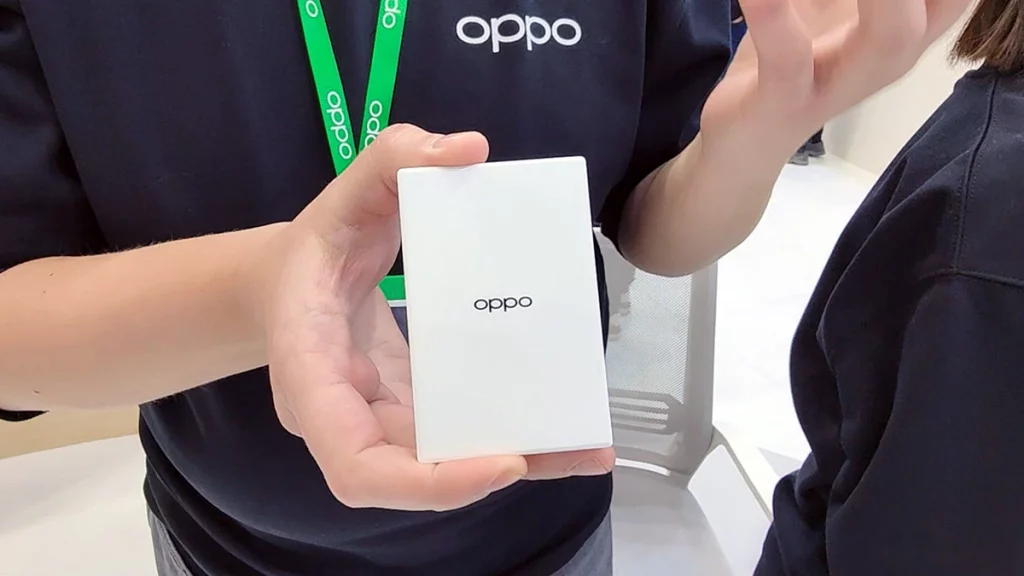Oppo’s groundbreaking Zero-power Communication technology, which was outlined in a white paper last year, has resulted in the development of a functioning Zero-Power Tag prototype. The cutting-edge device is being showcased at the MWC 2023 expo.

What sets the Zero-Power Tag apart is its ability to operate without a battery, a feat made possible by its utilization of key technologies such as RF signal harvesting, backscattering, and low-power computing. By extracting energy from the surrounding environment, the device can function independently and communicate wirelessly, catering to the diverse needs of IoT in the 6G era some years down the line.
Zero-Power devices are designed to derive energy from ambient radio signals emitted by sources such as FM radio towers, TV towers, cellular base stations, and WiFi access points. The harvested energy is then used to modulate ambient radio signals with the device’s own information, which can then be transmitted outwards via backscattering communication.
In the not-too-distant future, IoT devices may be able to draw energy directly from Bluetooth, WiFi, and cellular signals, resulting in smaller, more durable, and more cost-effective devices. Electronic tags, for example, could be utilized for item tracking without the need for battery replacement or recharging. The Zero-Power Tag prototype we examined was a plastic rectangle with an embedded chip, although Oppo informed us that it might ultimately take the form of a sticker that can be attached anywhere.
One potential use case that was mentioned involved monitoring the migratory habits of endangered birds using the device. Oppo’s Zero-Power Tag represents a paradigm shift in the world of IoT, where the use of harmful batteries could be drastically reduced. Apple AirTags, for example, rely on coin batteries that last only a year. However, innovative solutions like the Zero-Power Tag could prevent millions of batteries from being disposed of in landfills, and can be a sustainable step towards eradicating miniature battery waste on a large scale.
RELATED:
- Our Entire MWC 2023 Coverage Here
- Vivo Pad 2 Chipset Leaked, Likely to Rival Oppo Pad 2
- Apple’s AirTag Safety Measures Successfully Stop a Man From Stalking
(Source)







